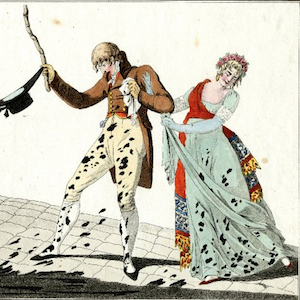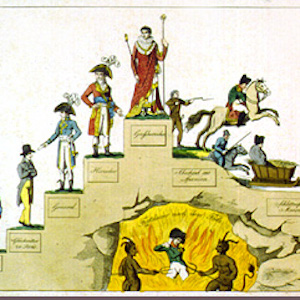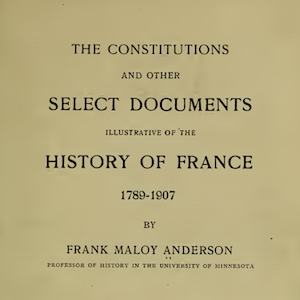Europe

Equality
At the beginning of the French Revolution, the term "equality" meant an end to the legal differences that had characterized the Old Regime. For example, all individuals would be subject to the same regimen of taxation.

The Assassination of Marat by Charlotte Corday
In the fall of 1793, the radical journalist was confined to his bathtub by a paralyzing skin disease he had contracted while hiding from the police in the sewers. He nevertheless continued to pour out populist tracts and remained highly influential in the sections.

Robespierre 10 Thermidor—Exposition of 1877
This painting from 1877 shows in romantic style Robespierre dying in a large room, surrounded by soldiers and others.

The Annoyance of Walking
French nobles had been used to riding in carriages or on horseback. Now, so radicals hoped, they could no longer afford to do so either financially or politically. The imagined response of this social elite reveals clearly to their attackers the worthlessness of such people.

The Blood of the Murdered Crying for Vengeance
Yet another English image promising that the death of Louis will bring havoc on the French Revolution. This engraving indicates that the very blood of the King requires vengeance.

Description of the Chouans and Other Counterrevolutionaries
The counterrevolution was a very large movement that would over time engulf different parts of France from 1793 into the Napoleonic period. But it was not one thing, for many regions of different ideologies were involved.

The Cap Français Fire
In June 1793, the French governor of Saint Domingue, Thomas–François Galbaud, tried to raise a revolt of the whites against republican commissioners sent from France. To defeat him, the commissioners promised freedom to the slaves who would fight on their behalf.

Progression of Napoleon’s Life
Even when they resisted Napoleon’s efforts to control their destinies, contemporaries of all European nations were fascinated by the Napoleonic legend unfolding before their eyes.

Revolutionary France 1799
Map of Europe in 1799 depicting Revolutionary France, territories occupied by French forces, and Sister Republics.
This source is a part of the The Napoleonic Experience teaching module.

Making Peace with the Catholic Church, 1801–2
One of Napoleon’s first priorities was to reestablish good relations with the papacy, which had fought the revolutionary church settlement tooth and nail.